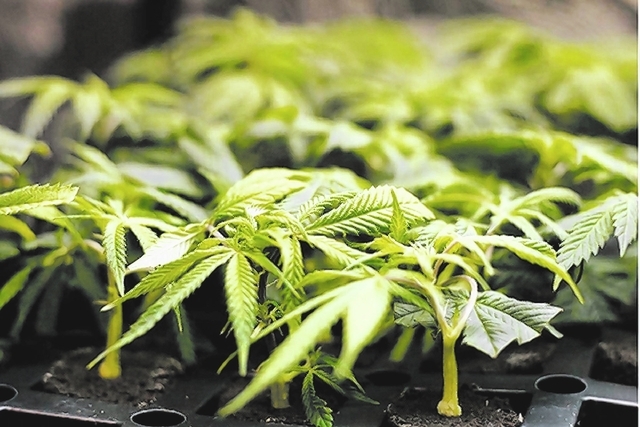California moving toward legal recreational marijuana
Almost two decades after California became the first state to legalize medicinal marijuana, the policy winds are shifting again in the Golden State.
There is debate about how regulations might change and how soon, but there is little debate that change is coming.
A number of factors have California lawmakers and bureaucrats scrambling to find political purchase in a shifting landscape. Colorado and Washington state legalized marijuana for recreational use last year and more states could follow suit this year. At the same time, poll after poll shows growing acceptance of legalizing recreational marijuana.
At its annual convention earlier this month, the California Democratic Party voted to support legalizing, taxing and regulating marijuana for all uses — medicinal, recreational and industrial.
Some high-profile Democrats aren’t so sure it’s a good idea. U.S. Sen. Dianne Feinstein, D-Calif., expressed skepticism last week. Gov. Jerry Brown said he’s worried that California — and the nation as a whole — might lose focus.
“All of a sudden if there’s advertising and legitimacy, how many people can get stoned and still have a great state or a great nation?” Brown said on NBC’s “Meet the Press.”
California Lt. Gov. Gavin Newsom, like Brown a Democrat, disagrees. He said efforts “to incarcerate our way to solving this problem” have failed, and it’s time to look for new solutions.
Nationally, public opinion polls from Pew Research Center, CNN and Gallup show a majority of Americans now favor legalizing marijuana for all uses.
Although efforts are underway to get initiatives on the November ballot this year, most stakeholders expect the issue won’t be in front of California voters until 2016.
Two statewide organizations that previously lobbied against efforts to regulate medical marijuana in California now say it’s a good idea.
The California Police Chiefs Association and the League of California Cities are sponsors of a bill in the Legislature that would give state officials oversight of the industry. They have opposed the idea since California voters in 1996 approved Prop. 215 authorizing the use of medical marijuana.
Paul Armentano, deputy director of the National Organization for the Reform of Marijuana Laws, said the new effort to regulate medical marijuana in California is a reaction to society’s move toward acceptance of the drug.
“What I think is going on is that lawmakers and city officials who haven’t wanted to deal with this issue have looked at polling, they’ve seen what happened in Colorado and Washington and they realize that Californians are ready to legalize marijuana outright. You don’t need to have a crystal ball to see what’s going to happen. I think these entities are realizing that if they want to have a seat at the table and have any say in how we live with marijuana going forward, they’re going to have to get a seat at the table now, something they’ve been reluctant to do,” Armentano said.
Covina Police Chief Kim Raney, president of the police chiefs association, told The Associated Press the legislation has widespread support in law enforcement.
“This legislation seems counterintuitive, but we polled our membership and over 90 percent of the chiefs felt that, regardless of how you felt about the marijuana issue itself, there needed to be a responsible public safety approach to this,” Raney said.




























